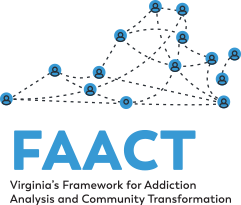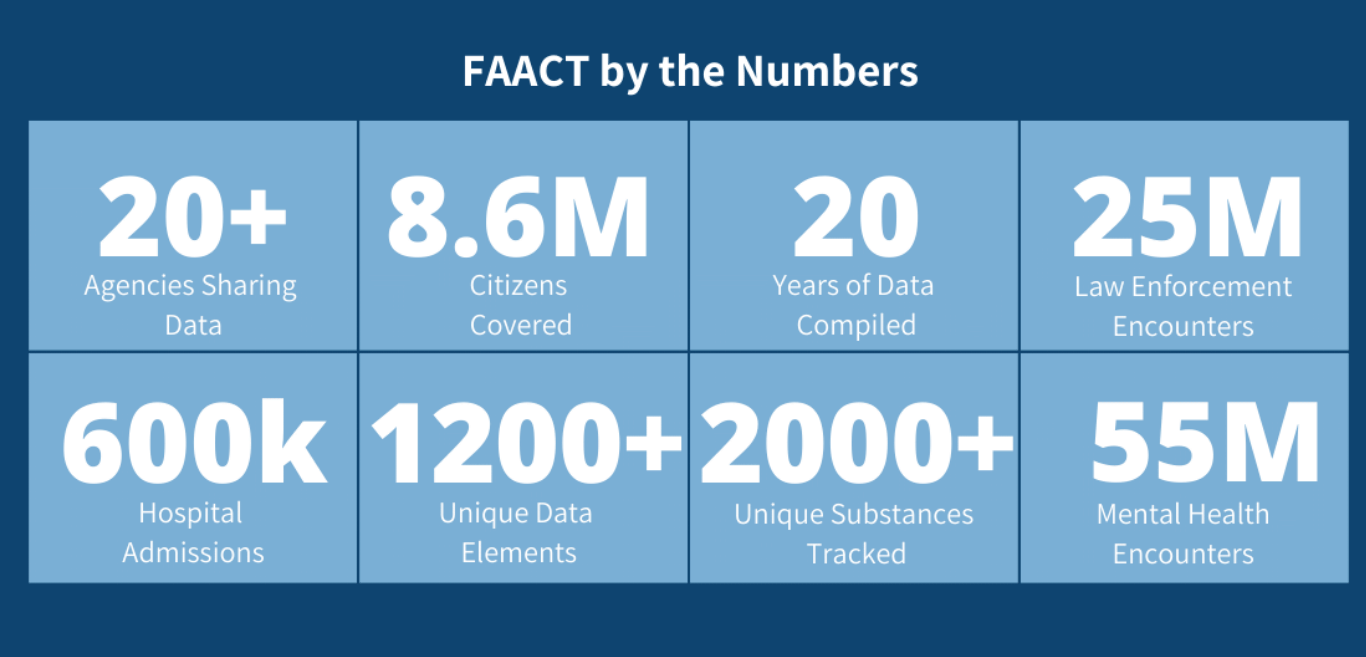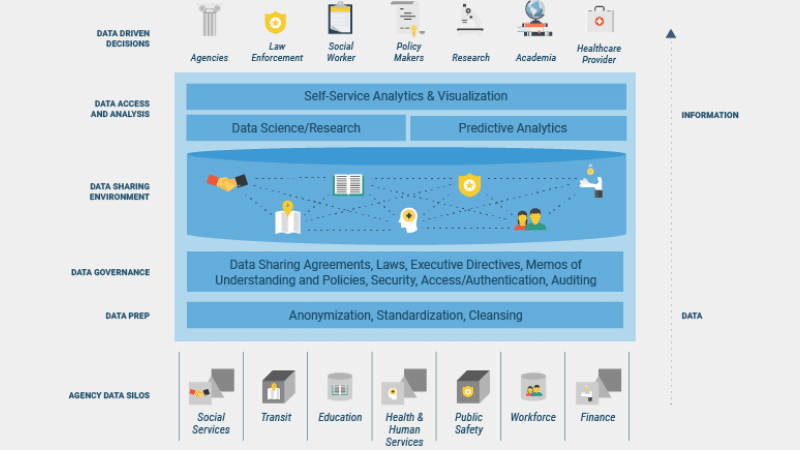Building a High-Impact Statewide Response to Substance Use Disorder Begins with Data Sharing
Building a High-Impact Statewide Response to Substance Use Disorder Begins with Data Sharing
Introduction
A landmark settlement between state governments and several large pharmaceutical companies could help states exponentially expand their response to the opioid epidemic. The settlement would funnel up to $26 billion to states and communities struggling to respond to the crisis.
But a flood of cash won’t solve the problem on its own. State and local leaders must consider how to use the funds most effectively and how to measure the outcomes of their investments. With millions of families eager to see the settlement creating lasting change in their communities and the settlement’s strict guidelines defining how funds can be used, it’s imperative that data analytics be a core component of any program supported by settlement funding.
Virginia’s Framework for Addiction Analysis and Community Transformation (FAACT) serves as a useful model for other states.
Building a High-Impact Statewide Response to Substance Use Disorder Begins with Data Sharing
Virginia’s Framework for Addiction Analysis and Community Transformation (FAACT) is a secure data-sharing platform led by the Department of Criminal Justice Services (DCJS) in collaboration with Virginia’s chief data officer (CDO). It combines previously siloed data from different agencies, secretariats, and private healthcare systems and delivers actionable intelligence to community leaders, supporting their timely and effective response.
Prior to the development of FAACT, many organizations within Virginia were tackling the opioid crisis, but information was isolated — stored in spreadsheets, databases, forms and even paper files. There was no easy way to pool data resources and share information. The lack of standards for data processing, collection and management made it difficult for users, who are civil servants and not data scientists, to maximize the data’s value.

The FAACT platform was developed to address this problem. Working with Qlarion, a Voyatek Company, Virginia implemented a scalable data sharing platform that gives users across agencies the ability to easily and securely pull data in and out of the platform and analyze the data without the need for support from a data analyst.
Establishing the data sharing infrastructure was critical to FAACT’s success. State and local leaders should employ the same approach and prioritize a comprehensive data sharing program that integrates data across healthcare agencies, social services, public safety and corrections, drug courts, community coalitions and private healthcare systems. Through this framework, states can grasp insights critical to prevention, early intervention, treatment and recovery.


Empowering Front Line Responders with Data Analytics
FAACT was created from the belief that the best people to respond to the opioid epidemic are those who are on the front lines witnessing the effects of drug use within their own communities.
State and local leaders nationwide should employ a similar approach and prioritize getting data into the hands of people on the front lines: EMS workers, local law enforcement, community treatment centers, etc. While some states have programs in place to measure the impact of the opioid crisis, next generation solutions must empower on-the-ground decision-making by community responders.
FAACT accomplishes this through a self- service analytics layer that gives approved community organizations the dashboards, reports and data visualization tools they need to interpret data as they respond to the crisis.
Once local responders have access to this powerful data, they can use it identify individuals who need help now, as well as those who may be more susceptible to opioid use in the future based on their individual circumstances.
Built for Flexibility and Scalability
FAACT is unique in that it does not take a one-size-fits-all approach; instead, it is built with the understanding that the opioid epidemic is constantly evolving and can have drastically different effects across communities.
Since its inception, FAACT has been continuously expanded with new data sets and reports, based on the nature of the crisis. For example, new dashboards and reports allow FAACT users to understand the relationship between substance use disorder and other social determinants of health, like employment, broadband access and education level.
FAACT has also been critical in helping local leaders stay ahead of emerging trends in drug use. Like many states, Virginia has seen an increase in the number of overdoses involving the use of multiple substances. An app within FAACT launched in 2021 provides unique cross-sectional data on instances where more than one opioid type is used, allowing users to see where polysubstance fatalities are increasing and which populations are most affected.
Finally, FAACT was also leveraged in early 2020 when the state had to rapidly respond to COVID-19. Virginia’s COVID Response Dashboard (CRD) is a new application built as an extension of FAACT. Because Virginia had already established a data sharing platform and data governance and sharing policies, the governor’s office was able to quickly roll out the new system in a matter of days, which otherwise would have taken months. The system provided state and local health care organizations with the data needed to make effective decisions in the face of a crisis, as they can now track cases, test results and capacity, PPE availability, hospital staffing, Intensive Care Unit (ICU) capacity and more.
Launching a Substance Use Disorder Analytics Framework

Forward-thinking state leaders know that the funds available from this settlement could have life-changing impacts in their communities. It’s important, though, that the initiatives do not rely on inflexible legacy systems that grow stale quickly and drag program performance with them, generating huge cost overruns and decreasing in value over time.
To achieve long-term results, state leaders must embrace an agile methodology and focus on continuous improvement:
- Avoid inflexible RFPs and prioritize scalability by leveraging cloud-based platforms, automation and machine learning.
- Consistently identify new ways to combine and use the state’s collective data.
- Invest in open data solutions that align with the digital behaviors of those suffering from substance use disorder.
- Use rapid prototyping to collect feedback quickly and optimize user experience for policymakers, front line responders and the public.


